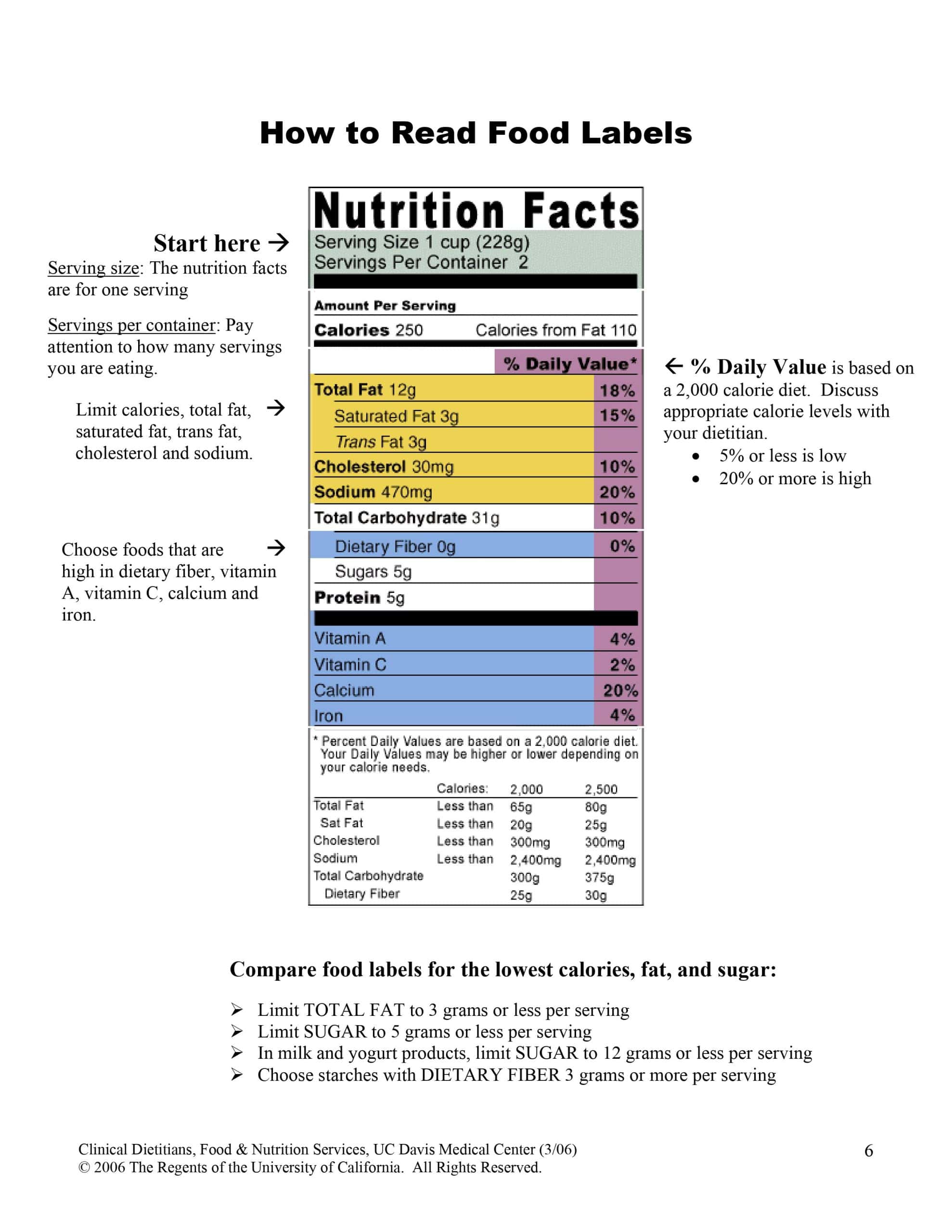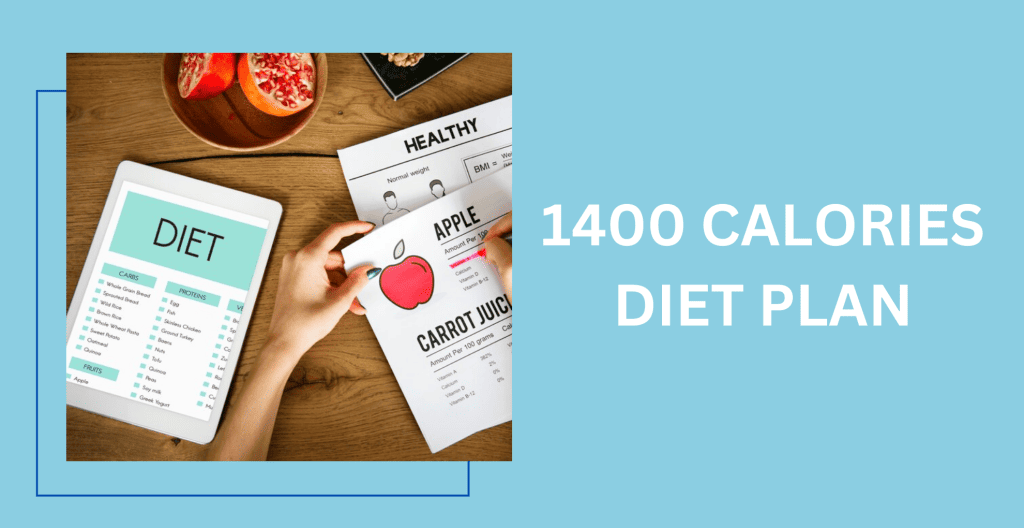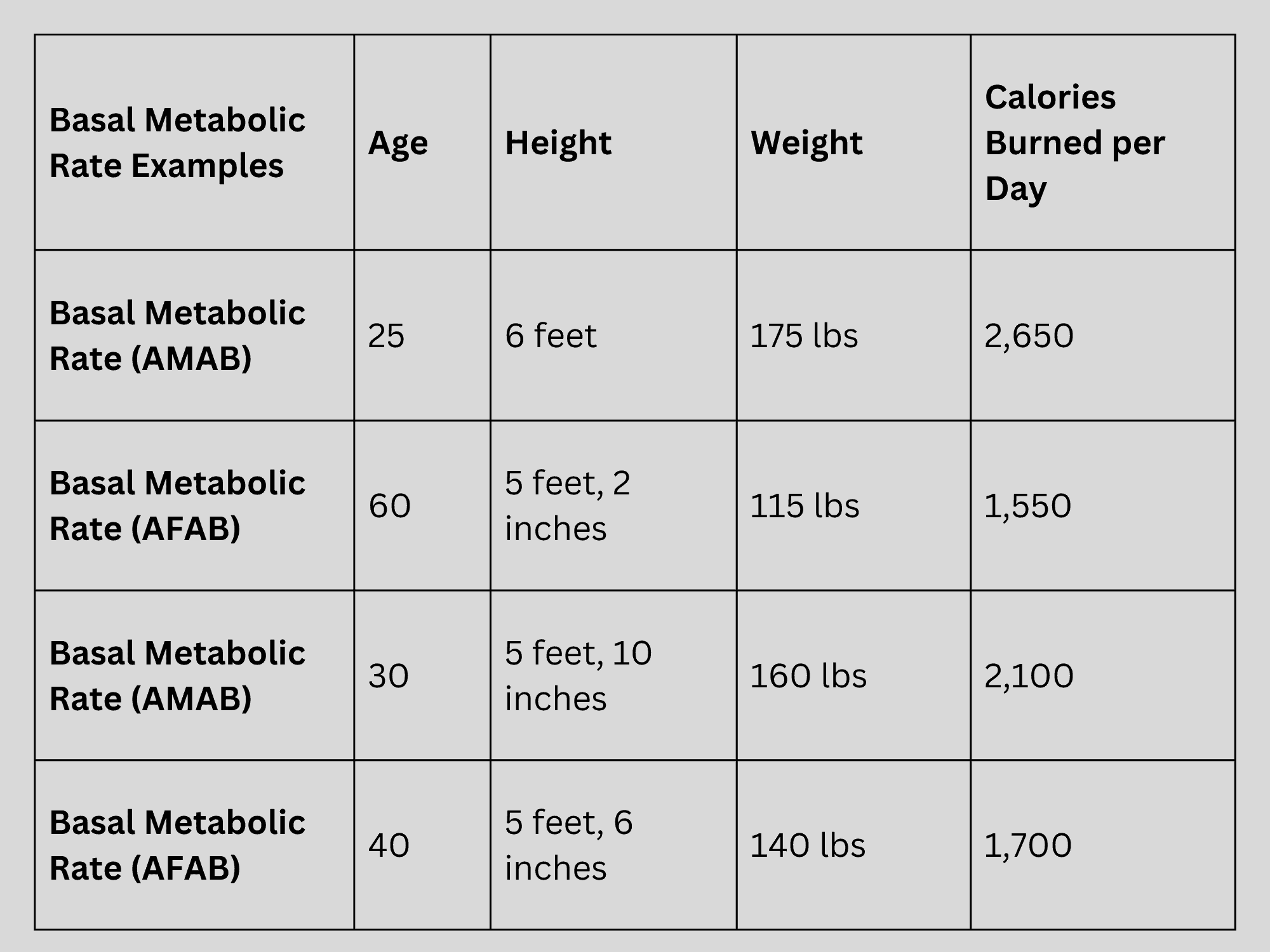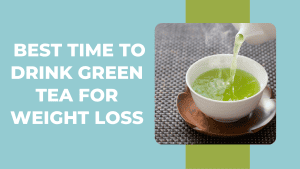In recent years, dietary advice has shifted towards considering whole diets instead of focusing on single foods or nutrients. Understanding how many calories we should eat daily is crucial for weight management. It’s recommended to consume 2000-2500 calories per day. When we discuss calorie plans below this, such as the 1400 calorie diet, we’re talking about how changing energy intake affects weight. According to a National School of Medicine study, strategies suggest that lower calorie intake significantly impacts weight loss. Sticking to a 1400 calorie per day diet can help maintain weight loss by providing a structured approach to calorie intake.
Eating 1400 calories daily encourages mindful eating habits and promotes portion control, both essential for sustaining weight loss over time. Additionally, the 1400 calorie diet plan encourages the consumption of nutrient-dense foods that support overall health and well-being. By adhering to this calorie plan, individuals may also experience improved energy levels and mood, further contributing to their ability to maintain a healthy weight. Read on to learn more about the 1400 calories a day meal plan, how it works, a sample menu, and expert recommendations!
What Is A 1400 Calorie Diet Plan?
A 1400 calorie diet plan is a method of controlling daily calorie intake to manage weight. In this plan, individuals aim to consume no more than 1400 calories per day. The concept is based on the principle that by limiting calorie intake, the body will burn stored fat for energy, leading to weight loss. This diet typically involves careful portion control and choosing foods low in calories but high in essential nutrients, such as fruits, vegetables, lean proteins, and whole grains. The goal is to create a calorie deficit, where the body burns more calories than it consumes, thus prompting weight loss over time. You may follow a 1400 calorie diet plan either independently or buy a diet plan under the guidance of a healthcare professional or a registered dietitian to ensure that your nutritional needs are met and that the diet is safe and appropriate for you!
How 1400 Calorie Diet Plan Works?
A 1400 calorie diet plan works by creating a calorie deficit, meaning you consume fewer calories than your body burns each day. This deficit forces your body to tap into stored energy, primarily fat, for fuel, leading to weight loss. However, it’s essential to understand the mechanisms at play:
1. Metabolic Rate: Your body burns calories at rest (basal metabolic rate) and during activity (physical activity and thermogenesis, the heat generated by bodily functions). This total calorie expenditure is your Total Daily Energy Expenditure (TDEE).
2. Calorie Deficit: Consuming fewer calories than your TDEE creates a calorie deficit. The size of the deficit determines the rate of weight loss. A 1400-calorie plan generally aims for a moderate deficit, leading to gradual, sustainable weight loss.
3. Nutritional Adequacy: Despite the calorie restriction, a balanced 1400-calorie plan should strive to provide essential nutrients your body needs to function correctly. This includes carbohydrates for energy, protein for muscle building and repair, healthy fats for hormone regulation, and vitamins and minerals for overall health.
4. Calculating Food Calories: To create a 1400-calorie deficit, understanding how to calculate food calories is essential. Here’s a basic approach: Firstly, pay close attention to food labels. Utilize the nutrition information panel on food labels to identify the “calories per serving” and adjust the amount based on the portion you consume. Additionally, take advantage of online resources and mobile apps designed to calculate food calories. These tools can be handy for determining the caloric content of meals based on specific ingredients and quantities.

5. Factors Affecting Individual Results: Individual responses to calorie restriction can vary due to factors like:
- Age: Metabolism tends to slow down with age, impacting calorie burning.
- Sex: Men generally have higher TDEEs than women due to muscle mass differences.
- Activity level: More activity increases calorie expenditure, potentially leading to faster weight loss.
- Body composition: Muscle burns more calories than fat, so individuals with higher muscle mass may lose weight faster.
- Genetics: Some individuals are genetically predisposed to be more efficient at burning calories, impacting weight loss results
1400 Calorie Diet Plan For 7 Days
Check out this 1400 calorie meal plan! This sample plan provides ideas for meals and snacks that total around 1400 calories. It’s just a starting point, so feel free to swap things out based on your preferences and what you have on hand. Remember, the most important thing is eating healthy and delicious food that keeps you full and satisfied. If you’re wondering about achieving goals like how to lose 15 kg in a month, this meal plan can help you! Just focus on sustainable habits like portion control, regular exercise, and nutritious food choices.
Now, let us look at the 1400 calorie meal plan-
Day 1
| TIMINGS | WHAT TO EAT |
| EARLY MORNING 6:00-6:30 AM | Detox drink |
| BREAKFAST 8:30-9:00 AM | Chickpea sandwich with 1 cup of fruit smoothie |
| Mid-Morning | Fruit + Soaked nuts |
| LUNCH 1:30-2:00 PM | Moong Dal + Bajra Chapati + Raita |
| DINNER 8:00-8:30 PM | Methi Paneer Roll |
| POST-DINNER | Any detox drink |
Day 2
| TIMINGS | WHAT TO EAT |
| EARLY MORNING 6:00-6:30 AM | Detox drink |
| BREAKFAST 8:30-9:00 AM | Poha with curd |
| Mid-Morning | Yoghurt with Nuts and Fruits |
| LUNCH 1:30-2:00 PM | Ragi Dosa with Sambar |
| DINNER 8:00-8:30 PM | Steamed Vegetables with Paneer |
| POST-DINNER | Any detox drink |
Day 3
| TIMINGS | WHAT TO EAT |
| EARLY MORNING 6:00-6:30 AM | Detox drink |
| BREAKFAST 8:30-9:00 AM | Dalia upma with curd |
| Mid-Morning | Melon Bowl |
| LUNCH 1:30-2:00 PM | Paneer Pulao |
| DINNER 8:00-8:30 PM | Bottle Gourd + Chapati |
| POST-DINNER | Any detox drink |
Day 4
| TIMINGS | WHAT TO EAT |
| EARLY MORNING 6:00-6:30 AM | Detox drink |
| BREAKFAST 8:30-9:00 AM | Stuffed Besan Cheela |
| Mid-Morning | Fruit Smoothie |
| LUNCH 1:30-2:00 PM | Ragi Dosa with Sambar |
| DINNER 8:00-8:30 PM | Methi Paneer Roll |
| POST-DINNER | Any detox drink |
Day 5
| TIMINGS | WHAT TO EAT |
| EARLY MORNING 6:00-6:30 AM | Detox drink |
| BREAKFAST 8:30-9:00 AM | Sprouts Chaat |
| LUNCH 1:30-2:00 PM | Multigrain Chapati with Mushroom Bhurji |
| DINNER 8:00-8:30 PM | Vegetable Khichdi |
| POST-DINNER | Any detox drink |
Day 6
| TIMINGS | WHAT TO EAT |
| EARLY MORNING 6:00-6:30 AM | Detox drink |
| BREAKFAST 8:30-9:00 AM | Methi Spring Onion Besan Thepla with Paneer Bhurji |
| LUNCH 1:30-2:00 PM | Cheat Meal |
| DINNER 8:00-8:30 PM | Idlis with Sambhar |
| POST-DINNER | Any detox drink |
Day 7
| TIMINGS | WHAT TO EAT |
| EARLY MORNING 6:00-6:30 AM | Detox drink |
| BREAKFAST 8:30-9:00 AM | Chickpea sandwich with 1 cup of fruit smoothie |
| Mid-Morning | Fruit + Soaked nuts |
| LUNCH 1:30-2:00 PM | Moong Dal + Bajra Chapati + Raita |
| DINNER 8:00-8:30 PM | Methi Paneer Roll |
| POST-DINNER | Any detox drink |
Benefits Of 1400 Calorie Diet Plan
The 1400 calorie diet plan offers several benefits for individuals seeking to manage their weight and improve overall health:
- Effective Weight Loss: By providing a controlled calorie intake, the 1400 calorie diet plan creates a calorie deficit essential for weight loss. When the body consumes fewer calories than it burns, it uses stored fat for energy, leading to gradual and sustainable weight loss. This approach is supported by research indicating that a moderate calorie deficit is more sustainable and less likely to result in muscle loss than drastic calorie restriction. Additionally, while a 1000 calorie diet plan may offer faster weight loss initially, it often lacks the necessary nutrients for long-term health and may lead to metabolic slowdown. Therefore, the 1400 calorie diet plan balances achieving weight loss goals and maintaining nutritional adequacy for sustained success.
- Portion Control: A 1400 calorie diet plan encourages portion control and mindful eating habits. By paying attention to portion sizes and choosing nutrient-dense foods, individuals can better manage their calorie intake and prevent overeating.
- Nutrient-Dense Foods: The 1400 calorie diet plan emphasizes consuming nutrient-dense foods such as fruits, vegetables, lean proteins, whole grains, and healthy fats. Incorporating foods rich in essential nutrients like Vitamin C, Vitamin E, or foods rich in vitamin B12 further enhances the nutritional value of the diet, providing a wide range of vitamins, minerals, and antioxidants that support overall health and well-being.
- Improved Health Markers: Research suggests that reducing calorie intake through a 1400 calorie diet plan can improve various health markers, including blood pressure, cholesterol, and blood sugar levels. These improvements can lower the risk of chronic diseases such as heart disease, diabetes, and stroke.
- Enhanced Energy Levels: Despite the calorie restriction, many individuals report feeling more energized and alert on a 1400 calorie diet plan. This is because nutrient-dense foods provide sustained energy without the energy crashes associated with high-sugar or high-fat foods. This applies to any diet plan, including a 3000 calorie diet plan, where focusing on nutrient-dense foods can still contribute to sustained energy levels throughout the day.
- Better Mood and Mental Well-Being: A balanced and nutritious diet can positively affect mood and mental well-being. Nutrient-rich foods support brain health and neurotransmitter function, improving mood, concentration, and cognitive function.
- Supports Long-Term Weight Management: Simply living longer isn’t enough. Quality of life and prolonged health during their senior years are essential. The 1400 calorie diet plan promotes healthy eating habits and lifestyle changes that can be sustained long-term. By learning portion control, making healthier food choices, and developing mindful eating habits, individuals can maintain their weight loss and prevent weight regain.
Does 1400 Calorie Diet Plan Help In Weight Loss?
Based on the research, it is safe to assume that the 1400 meal plan is a DASH eating pattern. The Dietary Approaches to Stop Hypertension (DASH) is a dietary pattern specifically developed to help prevent and manage hypertension, also known as high blood pressure. While the primary focus of the DASH diet is to lower blood pressure and improve overall cardiovascular health, its emphasis on consuming nutrient-rich foods and reducing intake of processed and high-calorie foods can lead to weight loss as a secondary benefit.
The DASH eating plan and the 1400 calorie diet plan advise limiting unhealthy fats and ensuring that total fat intake constitutes less than 25% of the diet’s energy. It also encourages consuming more low-energy-dense foods, such as vegetables and fruits (9 to 12 servings per day) and low-fat dairy products (2 to 3 servings per day). You can use a calorie calculator to help determine appropriate portion sizes and caloric intake within the 1400 calorie diet plan.
To sum up, following the 1400 calories a day meal plan may promote a balanced and sustainable approach to eating, which may support long-term weight management goals.
Who Should Follow A Strict 1400 Calorie Diet Plan?
A strict 1400 calorie diet plan isn’t a one-size-fits-all approach. It’s generally not recommended for most people due to the potential for nutrient deficiencies. However, under the close supervision of a healthcare professional, it might be suitable for individuals with a significant amount of weight to lose (more than 30 lbs) and a body mass index (BMI) in the obese category. Additionally, for those following a keto diet, which emphasizes high-fat, low-carbohydrate foods, it’s essential to monitor nutrient intake carefully to prevent deficiencies.
When reducing calorie intake, it’s crucial to account for your basal metabolic rate (BMR) to ensure your body receives adequate nourishment. Your BMR represents the calories your body needs to maintain essential physiological functions at rest. Here are examples of basal metabolic rates calculated using the BMR calculator:
Foods To Eat On A 1400 Calorie Diet
Incorporating specific food groups into a 1400 calories a day meal plan is essential for ensuring nutritional balance, promoting satiety, and supporting overall health. By carefully selecting nutrient-dense foods that provide necessary vitamins, minerals, and macronutrients, individuals can meet their dietary needs while managing calorie intake effectively. Each food group plays a unique role in providing essential nutrients, promoting feelings of fullness, and preventing nutrient deficiencies, making them integral components of a successful 1400 calorie meal plan. Here are a few food groups that you must incorporate into this diet plan:
- Lean Proteins: Lean proteins like chicken breast, turkey, fish, tofu, eggs, and low-fat dairy products provide essential amino acids for muscle repair and growth. They also contribute to feelings of fullness, helping prevent overeating and supporting weight loss on a 1400 calorie meal plan.
- Fruits and Vegetables: Fruits and vegetables are low in calories but high in fibre, vitamins, and minerals. They add volume to meals without significantly increasing calorie intake, making them ideal for filling up your plate and satisfying hunger on a 1400 calorie diet. Additionally, their natural sweetness can help curb cravings for high-calorie desserts. Consider exploring the 25 best foods rich in vitamin E to include in your routine when you aim to eat 1400 calories a day!
- Whole Grains: Whole grains like brown rice, quinoa, oats, and whole wheat bread or pasta provide complex carbohydrates that are slowly digested, resulting in sustained energy levels throughout the day. They also contain fibre, which promotes feelings of fullness and aids digestion, supporting weight management on a 1400 calorie meal plan.
- Healthy Fats: Healthy fats from sources like avocado, nuts, seeds, and olive oil add flavour and richness to meals while providing essential fatty acids that support heart health and brain function. Including small amounts of healthy fats in a 1400 calorie diet can help enhance satiety and satisfaction, preventing feelings of deprivation.
- Legumes: Legumes such as beans, lentils, and chickpeas are rich in protein, fibre, and complex carbohydrates. They are also low in fat and calories, making them an excellent choice for filling up meals on a 1400 calorie diet while providing essential nutrients and promoting digestive health.
- Low-Calorie Dairy: Low-fat or fat-free dairy products like Greek yoghurt, cottage cheese, and skim milk are rich in calcium and protein and lower in calories than their full-fat counterparts. Including these dairy options in a 1400 calorie meal plan can help meet calcium needs for bone health without significantly increasing calorie intake.
- Herbs and Spices: Herbs, spices, and seasonings add flavour to meals without adding extra calories, salt, or sugar. Using herbs and spices liberally in cooking can enhance the taste of dishes on a 1400 calorie meal plan, making them more enjoyable and satisfying without compromising health or calorie goals.
- Water and Calorie-Free Beverages: Water and calorie-free beverages like herbal tea and sparkling water are essential for staying hydrated on a 1400 calorie diet. Drinking fluids throughout the day can help curb hunger, prevent overeating, and support overall health and well-being without adding extra calories.
Foods To Avoid On A 1400 Calorie Diet
When following a 1400 calorie diet, making every calorie count toward meeting nutritional needs and supporting weight loss goals is crucial. Avoiding certain foods can help maximize nutrient intake while minimizing calorie consumption. Here are some foods to avoid on a 1400 calorie diet plan, along with reasons why:
- Sugary Drinks: Sugary beverages like soda and fruit juices are high in calories and sugar but low in nutrients. Consuming these drinks can lead to rapid spikes in blood sugar levels and contribute to weight gain.
- Processed Foods: Processed snacks and meals are often loaded with unhealthy fats, added sugars, and sodium. These foods provide empty calories and lack essential nutrients, making them detrimental to overall health and weight loss efforts.
- High-Calorie Snacks: Snack foods like chips, cookies, and candies are calorie-dense and low in nutrients. Consuming these snacks can quickly increase calorie intake without providing lasting feelings of satiety.
- Fried Foods: Fried foods are high in unhealthy fats and calories, contributing to weight gain and increasing the risk of heart disease and other health issues. Avoiding fried foods can help reduce calorie intake and promote better health outcomes.
- Sugary Treats: Desserts like cakes, pastries, and ice cream are high in sugar and calories but low in essential nutrients. Limiting the consumption of sugary treats can help prevent spikes in blood sugar levels and support weight management goals.
- High-Fat Dairy: Full-fat dairy products like whole milk and cheese are high in saturated fats and calories. Low- or fat-free dairy options can help reduce calorie intake while meeting calcium and protein needs.
- Alcohol: Alcoholic beverages are calorie-dense and can contribute to weight gain if consumed in excess. Additionally, alcohol can impair judgment and lead to overeating or making poor food choices.
- Refined Carbohydrates: Foods made with refined grains lack fibre and essential nutrients, leading to rapid spikes in blood sugar levels and increased hunger. Choosing whole grains over refined carbohydrates can help promote satiety and support weight loss efforts.
How Will You Feel After 1 Month Of 1400 Calorie Diet?
After following a 1400 calorie diet for a month, individuals may experience various physical and emotional changes. This calorie-restricted diet can lead to weight loss, improved energy levels, and better overall health outcomes. Additionally, adhering to a 1400 calorie diet may also result in positive changes in mood, sleep quality, and confidence levels. Here are more specific possibilities of how one can feel after following the 1400 calorie meal plan for a month:
1. Better Sleep Quality: Some individuals find that following a 1400 calorie diet improves their sleep quality. Eating nutritious foods and maintaining a healthy weight can help regulate sleep patterns and promote restful sleep.
2. Enhanced Physical Performance: Consuming adequate nutrients while following a 1400 calorie diet can support physical performance and exercise recovery. After a month, you may have more stamina and endurance during workouts.
3. Increased Confidence: Achieving success with a 1400 calorie diet plan can boost confidence and self-esteem. Progress toward weight loss and improved health can motivate you to make healthy choices.
4. Improved Digestion: Eating a diet rich in fruits, vegetables, and whole grains can support digestive health and regularity. After a month on a 1400 calorie diet, you may notice improvements in digestion and a reduction in digestive discomfort.
Tips And Precautions While Following 1400 Calorie Diet
The main goal is to develop strategies that promote a mix of healthy behaviours to achieve a better lifestyle. This includes changing your diet and adopting helpful personality traits and lifestyle improvements. The first step is to identify critical key behaviours. Research has shown that successful weight maintenance involves staying active, eating a diet low in calories and fats, having breakfast regularly, keeping track of your weight, and maintaining a consistent weekly eating schedule. Here are specific tips and precautions to follow when you aim to eat 1400 calories a day:
- Drink More Water: The energy density of food or drinks can vary from low to high, depending on what they’re made of. Fat has the most calories per gram, so less-fat foods have lower energy density. Water content plays a significant role in determining energy density as well. Water adds weight to food without contributing calories, so foods with higher water content tend to have lower energy density regardless of their fat content. This, in turn, can lead to ending a meal earlier, delaying the onset of hunger until the next meal, and ultimately reducing the amount consumed during subsequent meals.
- Substitute lower-energy-dense foods for higher-energy-dense foods: To promote the consumption of low-energy-dense foods, the Dietary Guidelines suggest swapping higher-energy-dense foods with lower-energy-dense alternatives. A key recommendation is to make half of your meal vegetables and fruits. This enhances nutritional intake and aids in weight management, a crucial aspect of following a 1400 calories a day meal plan. A food calorie calculator can further facilitate adherence to calorie goals and optimize food choices!
- Limiting processed foods, sugary drinks, and refined carbohydrates is crucial for weight loss and overall health. These foods are often high in calories and low in nutrients, which can hinder progress towards weight loss goals and contribute to various health issues such as obesity, diabetes, and heart disease.
- Practising mindful eating: It is essential for maintaining a healthy relationship with food. Individuals can prevent overeating and promote better digestion by paying attention to hunger and fullness cues, avoiding distractions while eating, chewing thoroughly, and savouring each bite. This approach also fosters a deeper appreciation for the flavours and textures of food.
- Staying hydrated: How much water to drink in a day is a common question many ask. Water is the key to supporting overall health and aiding in weight loss. ‘Drinking plenty of water throughout the day helps maintain hydration levels, supports bodily functions, and can help control appetite. Aim for at least eight glasses of water per day, adjusting based on activity level and climate. Additionally, incorporating hydrating foods such as fruits and vegetables into your diet can further increase your hydration needs.
- Incorporating regular physical activity into your routine is essential for weight management and overall well-being. Aim for at least 30 minutes of moderate-intensity exercise most days of the week. Exercise enhances calorie burning, improves cardiovascular health, strengthens muscles, and boosts mood. Choose activities that you enjoy, and that fit your lifestyle to make exercise a sustainable habit.
- Avoid Skipping meals: This can disrupt hunger hormones and lead to overeating later in the day. Eating regular, balanced meals and snacks helps regulate appetite, maintain energy levels, and support overall health. It’s essential to prioritize consistency in meal timing and composition to support weight loss goals. This applies to any diet plan, including a 2500 calorie diet plan. Focus on including protein, healthy fats, fibre, and carbohydrates in each meal to promote satiety and sustain energy throughout the day.
Key Takeaways
In summary, effective weight management requires a broader, more long-term approach than solely focusing on calorie intake. It is notemworthy that not only the 1400 calorie diet plan is one tool in a broader weight management strategy, but any other claorie plan such as the 2000 calorie diet plan can be effective! While physiological mechanisms play a role in regulating intake, societal factors often contribute to obesity. Understanding these mechanisms can be beneficial, as can considering the impact of food on feelings of fullness and energy balance. However, finding a simple solution or a meal plan like 1400 calories a day meal plan to this complex issue is unrealistic. The body actively maintains its weight, requiring strategies to overcome these mechanisms. Rather than just reducing calories, a comprehensive approach is needed to address weight management effectively.
References
- 2017. YouTube: Home. https://pdf.sciencedirectassets.com/283376/1-s2.0-S2213398423X00050/1-s2.0-S2213398423001847/main.pdf?X-Amz-Security-Token=IQoJb3JpZ2luX2VjEHAaCXVzLWVhc3QtMSJIMEYCIQDkCujXZDoe5dKpUb%2BaRzZ%2Fh9htCMofIrfZv%2F%2FKNLVLRgIhAN%2F4kbRk0%2Bk3CKwfkNokeuSrUYjKAQKYa
- “,.” 2023. , – YouTube. https://www.sciencedirect.com/science/article/pii/S2213398423001847
- Benton, David, and Hayley A. Young. 2017. “Reducing Calorie Intake May Not Help You Lose Body Weight.” NCBI. https://www.ncbi.nlm.nih.gov/pmc/articles/PMC5639963/#section17-1745691617690878title
- “Caloric Restriction in Humans: Impact on Physiological, Psychological, and Behavioral Outcomes.” n.d. NCBI. Accessed March 4, 2024. https://www.ncbi.nlm.nih.gov/pmc/articles/PMC3014770/
- ROLLS, BARBARA J. n.d. “DIETARY MANAGEMENT OF OBESITY: CORNERSTONES OF HEALTHY EATING PATTERNS.” NCBI. Accessed March 4, 2024. https://www.ncbi.nlm.nih.gov/pmc/articles/PMC5726407/
FAQs
What is Is The 1400-Calorie Diet?
The duration one should follow a 1400 Calorie Diet depends on individual weight loss goals, metabolic rate, and overall health. While some people may follow this plan for a few weeks to jump-start weight loss, others may incorporate it into a long-term lifestyle change. Monitoring progress, listening to your body, and adjusting as needed are essential for sustainable and healthy weight loss.
Is The 1400 Calorie Diet Safe?
Following a 1400 calorie diet plan can lead to weight loss for many individuals, creating a calorie deficit necessary for shedding pounds. However, the amount of weight lost varies depending on factors such as starting weight, metabolism, adherence to the diet, and overall lifestyle habits. Consistency, balanced nutrition, and regular physical activity are critical factors in achieving successful weight loss on this plan.
How long should you be on 1400 Calorie Diet?
The duration one should follow a 1400 Calorie Diet depends on individual weight loss goals, metabolic rate, and overall health. While some people may follow this plan for a few weeks to jump-start weight loss, others may incorporate it into a long-term lifestyle change. Monitoring progress, listening to your body, and adjusting as needed are essential for sustainable and healthy weight loss.
Can I lose weight by 1400 calories diet plan?
Following a 1400 calorie diet plan can lead to weight loss for many individuals, creating a calorie deficit necessary for shedding pounds. However, the amount of weight lost varies depending on factors such as starting weight, metabolism, adherence to the diet, and overall lifestyle habits. Consistency, balanced nutrition, and regular physical activity are critical factors in achieving successful weight loss on this plan.
Who Should Avoid 1400 calorie diet plan?
While the 1400 calorie diet plan may be suitable for some individuals seeking weight loss, it may not be appropriate for everyone. People who engage in vigorous physical activity, have higher energy needs, are pregnant or breastfeeding, or have certain medical conditions may need more calories to support their health and well-being. It’s essential to consult with a healthcare professional before starting any calorie-restricted diet, especially if you fall into one of these categories.
What happens if you eat 1400 calories a day for a month?
Consuming 1400 calories a day for a month can result in weight loss for many individuals, as it creates a calorie deficit that promotes fat loss. However, the lost amount can vary depending on starting weight, metabolism, activity level, and overall dietary habits. Additionally, weight loss may not be linear and can fluctuate due to water retention, muscle gain, and hormonal changes.
Are there any side effects of eating 1400 calories?
While following a 1400 calorie diet plan may lead to weight loss, it’s essential to be aware of potential side effects. Some people may experience symptoms such as fatigue, weakness, dizziness, irritability, or nutrient deficiencies if the diet is not adequately balanced or does not meet their nutritional needs. It’s crucial to listen to your body, consume various nutrient-dense foods, and seek guidance from a healthcare professional if you experience any adverse effects.
How much weight will I lose if I eat 1400 calories a day?
The weight you lose on a 1400 calorie diet depends on various factors, including your starting weight, metabolism, activity level, and adherence to the diet plan. Generally, creating a calorie deficit of 500 to 1000 calories per day can result in a weight loss of about 0.5 to 1 kg per week. Therefore, if you consistently consume 1400 calories a day and maintain a healthy lifestyle, you may likely lose approximately 0.5 to 1 kg per week over time.









